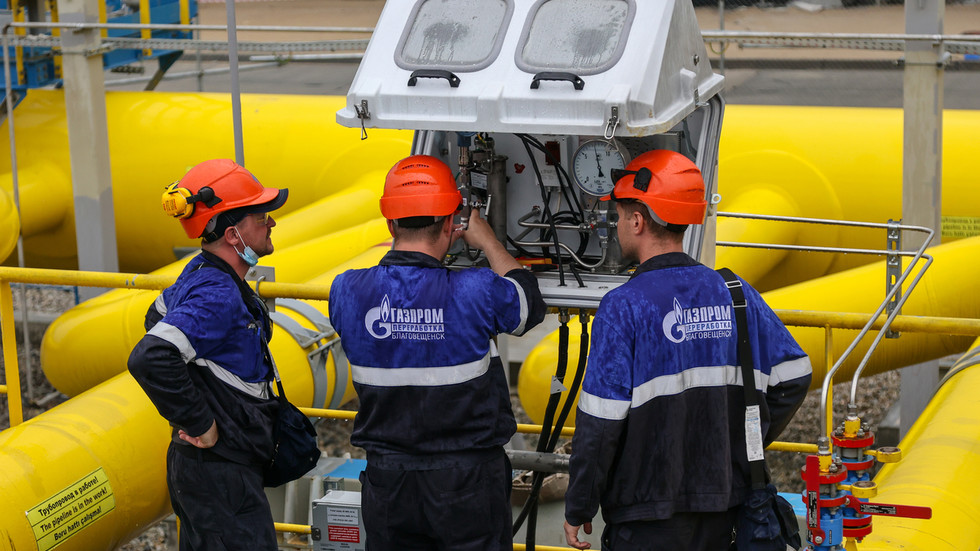A rise in gas exports along with favorable price dynamics were major drivers of financial growth, the company has said
Russian energy giant Gazprom posted a profit in 2024 after recording its first loss in more than two decades the previous year. The increase is attributed to improved gas exports to countries such as China, the company said.
Gazprom, once the main gas supplier to the EU, dramatically reduced its exports to the region three years ago following Ukraine-related sanctions imposed by the West and the sabotage of the Nord Stream pipelines. Russia’s share of EU pipeline gas imports dropped from over 40% in 2021 to around 11% in 2024.
Gazprom’s full-year 2024 net profit amounted to 1.2 trillion rubles ($14.76 billion), driven by an improved gas business and rising interest income from financial investments in its gas business and increased interest income from financial investments, according to a statement released by the company on Wednesday.
“Gazprom has strengthened its position across a number of key financial indicators in 2024, confirming the effectiveness and resilience of its business model,” the company’s deputy CEO, Famil Sadygov, said, commenting on the results.
Sadygov attributed the improved performance to rising gas exports to countries such as China, and higher interest income.
Once Russia’s most valuable company, Gazprom suffered record losses last year due to plummeting sales to the EU, once its key market. The company reported a net loss of $6.8 billion for 2023, the first time since 1999. This stood in stark contrast to the net profit of $13.2 billion recorded in 2022.
In 2024, revenue for Gazprom Group – which includes gas, oil, and electric power businesses – surged 25% to 10.7 trillion rubles ($130.8 billion), making it the company’s second-highest results on record. The all-time high of 11.7 trillion rubles ($143 billion) was reached in 2022, when European gas prices soared amid the EU’s decision to curb imports from Russia following the escalation of the Ukraine conflict.
Gazprom’s spending declined by 3% to 2.4 trillion rubles ($29.5 billion). The company said its debt remained unchanged at 6.7 trillion rubles, adding that it held more than 1 trillion rubles in cash reserves.
“This reserve of funds on the balance sheet ensures the Group’s high financial stability even under sanctions pressure,” Sadygov said.
You can share this story on social media:
Read the full article here


